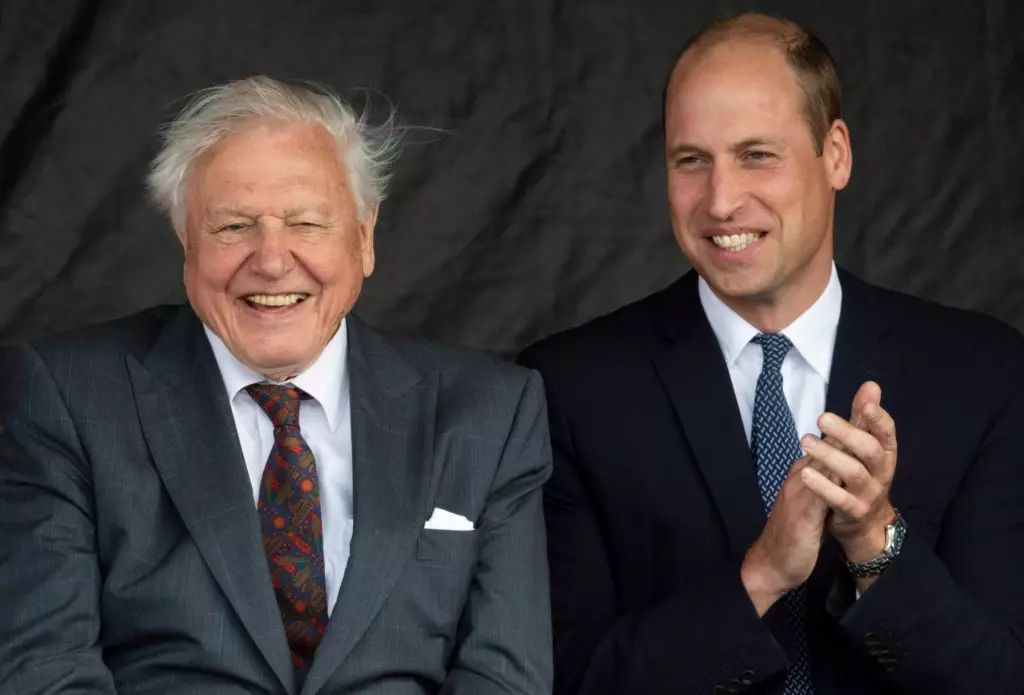Sir David Attenborough, a beloved figure in broadcasting and wildlife documentary filmmaking, has never shied away from sharing his rich and sometimes perilous experiences from decades of exploration. Recently, during a conversation with Prince William, the 99-year-old broadcaster recounted an alarming incident from his early years when he first donned a scuba-diving helmet. The gravity of this story is not just in the potential for personal harm he faced, but also highlights the inherent dangers in the pioneering days of underwater exploration—days that did not yet fully understand the critical importance of safety measures.
Attenborough’s near-drowning experience in 1957, attributed to faulty diving equipment, serves as a sobering reminder of the challenges faced by those venturing into uncharted waters. His account of feeling water creeping around his chin, quickly escalating to a potentially life-threatening predicament, reveals the vulnerability even the most experienced individuals can encounter. His dramatic narrative illustrates not only the physical danger but also the psychological impact of being trapped in an intimidating situation where one cannot breathe or be heard.
A Lesson in Accountability
The shift from personal experience to broader implications lies in Attenborough’s discussion of the operational director who met the same fate. This anecdote starkly underscores the importance of accountability and a rigorous approach to safety in any field, especially one as unpredictable as marine exploration. The director’s refusal to acknowledge the fault in the equipment until faced with dire consequences highlights a troubling mentality that can have dire ramifications. In a high-stakes environment, adherence to safety protocols is paramount, and Attenborough’s story serves as a cautionary tale for future generations of researchers and adventurers.
Echoes of the Deep
Transitioning from this harrowing personal experience, Attenborough’s latest documentary, “Ocean,” serves as a clarion call to humanity regarding the state of our oceans. Released on World Oceans Day, it melds his historical experiences with a fierce advocacy for marine conservation. What resonates throughout the documentary is a theme of loss—loss which is sobering yet often unobtrusive, hidden beneath the waves. Attenborough’s assertion that humanity’s actions have had devastating effects on ocean biodiversity is a poignant reminder of our environmental responsibilities.
While on land, any such destruction would likely incite public outrage, the degradation occurring in the ocean remains largely unrecognized by the general populace. Attenborough’s frustration is palpable as he navigates these themes, urging viewers to confront the grim reality of our impact on marine ecosystems. His ability to connect personal narrative with broader environmental issues empowers audiences to form a deeper understanding of the current crisis.
Bridging Generations with a Purpose
Additionally, Attenborough’s dialogue with Prince William holds significance beyond a mere exchange between two prominent figures. Their conversation represents an intersection of celebrity and environmental advocacy, reminding us that discussions around conservation must extend into the highest echelons of society. By engaging with leaders, Attenborough amplifies the conversation, encouraging systemic change to combat the challenges highlighted in his documentary. The blend of personal storytelling with urgent global issues exemplifies the power of narrative to inspire action and responsible stewardship of our planet’s most precious resources, leaving an indelible mark on viewers and decision-makers alike.
